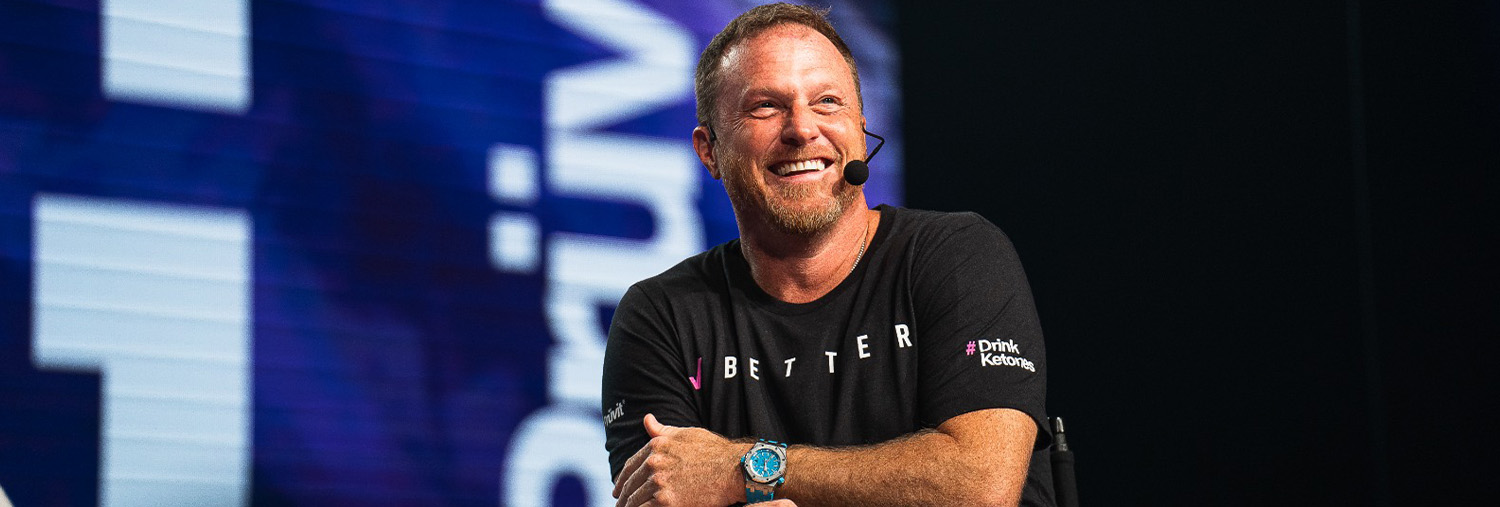The Myth of Overnight Success: Brian Underwood on Preparing for Long Term Success and How the Weight of It All Can Crush You
While plenty of people are armed with the ambition to make something of themselves in the world, fewer are properly prepared for the work entailed nor the burden that comes with achieving these goals. Especially in the modern social media era, many people see the accomplishments of their peers and aspire to emulate them or find success on their own. While social media may make it seem like successful entrepreneurs have easy, carefree lives that is far from the truth. Their success is just the tip of the iceberg as most entrepreneurs spend years cultivating their skills before ever experiencing public admiration. Regardless of the public’s conception of the process, skewed by social media bravado, nobody becomes successful without hard work and dedication.
Further, entrepreneurs who can work their way to the top are not out of the woods once they achieve their goals. Maintaining a successful business is just as difficult as starting a business, if not more. As the classic superhero adage goes, “with great power, comes great responsibility.” This concept is certainly no different when it comes to the realm of entrepreneurship as entrepreneurs are ultimately responsible for their employees’ salaries and the overall health of the business. While some entrepreneurs rise to the challenge of starting a company that lasts, many prospective entrepreneurs are crushed under the weight of temporary success and fail to build a sustainable venture. Whether a business fails due to its CEO burnout or a business fails as a result of rash financial decisions made with recently infused cash, a company’s long-term prosperity is partially contingent on its leadership team having a holistic understanding of the positive and negative externalities of success.
Brian Underwood, an entrepreneurial success story in his own right and founder of leading keto company Prüvit, is committed to sharing his journey to success and how to maintain it. In addition to his role as the co-founder and CEO of Pruvit, the thought leader has recently embraced his platform, sharing his expertise in how to scale a successful business that lasts while preserving one’s mental health with work and life priorities.
Underwood is particularly keen on inspiring others to set themselves up for long-term success by the choices they make in the present moment, offering sage advice on how to battle burnout and beat bad decisions in the entrepreneurial race to the top.
“I truly believe that success has weight because that weight has crushed me before,” Underwood divulged on Instagram. “It’s why I, like so many other ‘successful’ entrepreneurs, hammer the principles of trusting the process and finding joy in the journey.”
“To succeed as an entrepreneur, think of yourself as the building and your foundation as the experience you gain along the way. Experience that allows you the wisdom to handle the weight of success” added the Prüvit CEO.
In other speaking events, Underwood explains that he doesn’t believe in overnight success, instead believing success is a culmination of habits, actions, and attitudes that create a solid foundation to keep growing upon. Underwood elaborates on this idea with an analogy to building a house, starting with a strong foundation.
“The foundation of the house is always the most important part to build,” revealed Underwood in an interview. “You have to love the grind of it, you have to love the journey. Because the reality of it is, no different than a lottery ticket winner, if you get all this money right away, but you’re mentally not prepared, emotionally not prepared, then the chances of you being able to utilize that money to grow it are going to be slim to none.”
“Be careful of what you hope for because if you’re not ready for it and it hits you, it can be as devastating as you think it can be rewarding,” added Underwood. “If you’re not ready to mentally carry that weight, then it can actually send you into a tailspin.”
Putting a capstone on the idea Brian states, “The house is only as good as its foundation.”
While navigating the new world of business prosperity certainly is no easy feat, paying close attention to Underwood’s careful counsel could make the difference between an entrepreneur having a fleeting moment and an entrepreneur building something that lasts the test of time.

